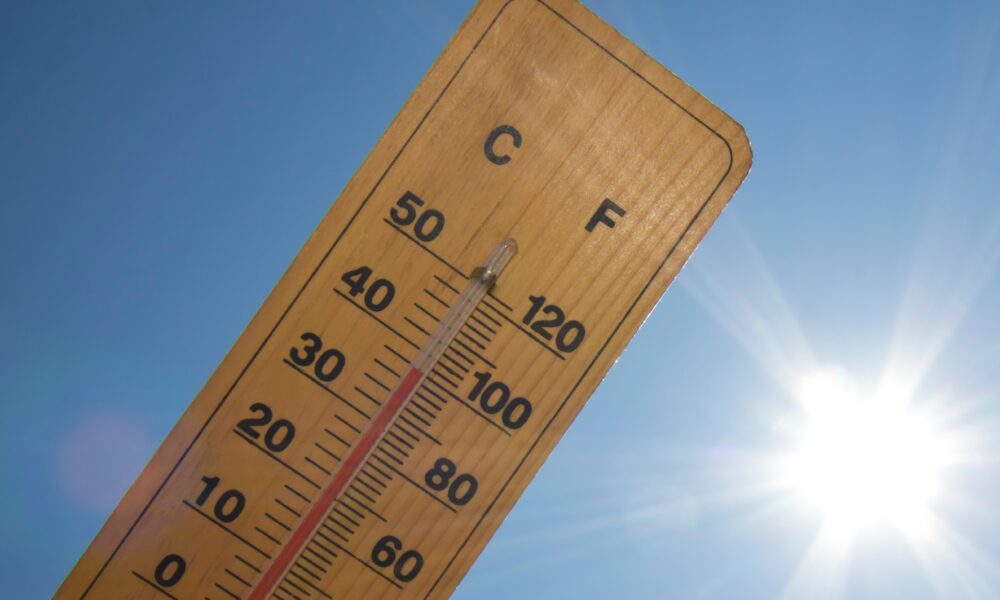What is extreme urban heat?
Extreme heat is defined differently by various governments and government entities. The National Weather Service uses a variety of factors in addition to the predicted temperature to determine whether an official extreme heat warning is issued, including historic high temperatures in the area, humidity, and estimated duration of unusually high temperatures. Most importantly, however, is whether health risks are expected to be higher because of the heat [1].
Extreme heat is exacerbated in cities by the urban heat island effect—cities have more surfaces that hold heat, and more heat sources in general, so they tend to be hotter than surrounding areas. As average temperatures rise worldwide, extreme heat is also getting worse and people are suffering because of it. Each year from 2015 to 2022 was subsequently the hottest year on record [2]. These conditions jeopardize public health. Worldwide, heat is the leading cause of weather-related death [3].
The impacts of extreme heat are disproportionately felt by marginalized communities. As a result of heat exposure, Non-hispanic Black adults are projected to experience 4.6 times as many excess cardiovascular deaths as Non-hispanic white adults by 2050 [4]. People over age 65, people with disabilities, and linguistically isolated communities are at a higher risk for heat illness, too. These disparities are often caused by unequal access to air conditioning, preexisting health conditions, or lack of access to information or transportation.
Is there extreme urban heat in St. Louis?
St. Louis is no exception to the dangers of extreme heat. From 1980 to 2018, 1,075 people in Missouri died as a result of extreme heat [5]. St. Louis suffers more due to the urban heat island effect. Low income residents in the city are at an even greater risk if they are unable to keep their air conditioning running or live in poorly insulated housing. The City of St. Louis must take decisive action to protect its residents from these concerns.
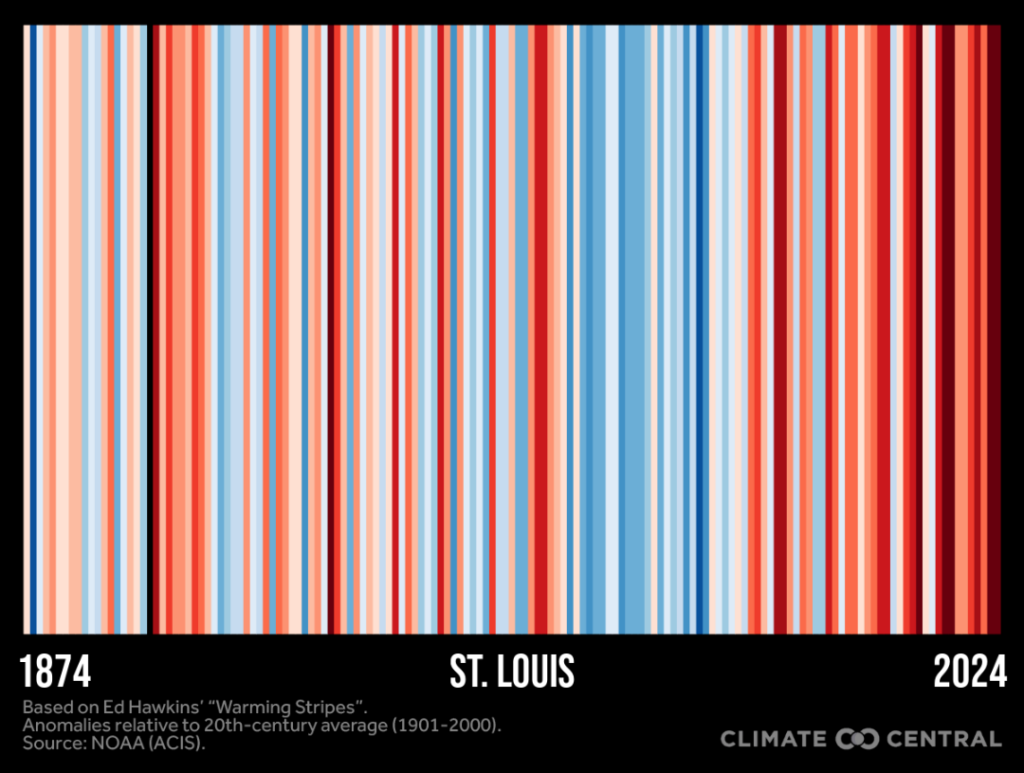
What is MCE doing about it?
MCE is creating a policy plan to alleviate the impacts of extreme heat and mitigate the rise of temperatures in the city. The plan is rooted in community feedback and centered around the most impacted communities.
In the fall, we held seven community meetings around the city and virtually, prioritizing neighborhoods at higher risk of heat illness. We asked attendees what concerned them during times of extreme heat. The primary concern expressed was rising utility costs. In 2022, Ameren was the 4th highest utility in the nation for customer disconnections [6]. Higher temperatures increase the demand for air conditioning, which puts even more strain on electricity infrastructure. Most of Ameren’s energy sources emit harmful greenhouse gasses that further contribute to rising temperatures worldwide [7].
Participants raised a number of other concerns. There is a lack of information about heat-related resources. It is expensive to retrofit homes to be energy efficient in St. Louis City, where in most neighborhoods the median house is over 100 years old [8]. Heat illness disproportionately impacts certain people based on factors like age, medical conditions, prescription and/or recreational drug use, income, and race. To learn more, check out our blog post about extreme heat [9].
Participants had a number of solutions in mind to these problems, like switching to solar power to emit fewer greenhouse gases, implementing more cooling centers, better maintenance of trees, more frequent public transportation, and bus shelters that provide relief from the heat. These ideas are at the center of the current draft of our policy plan, which has four pillars— energy and utilities, trees, public transit, and community care and human needs.
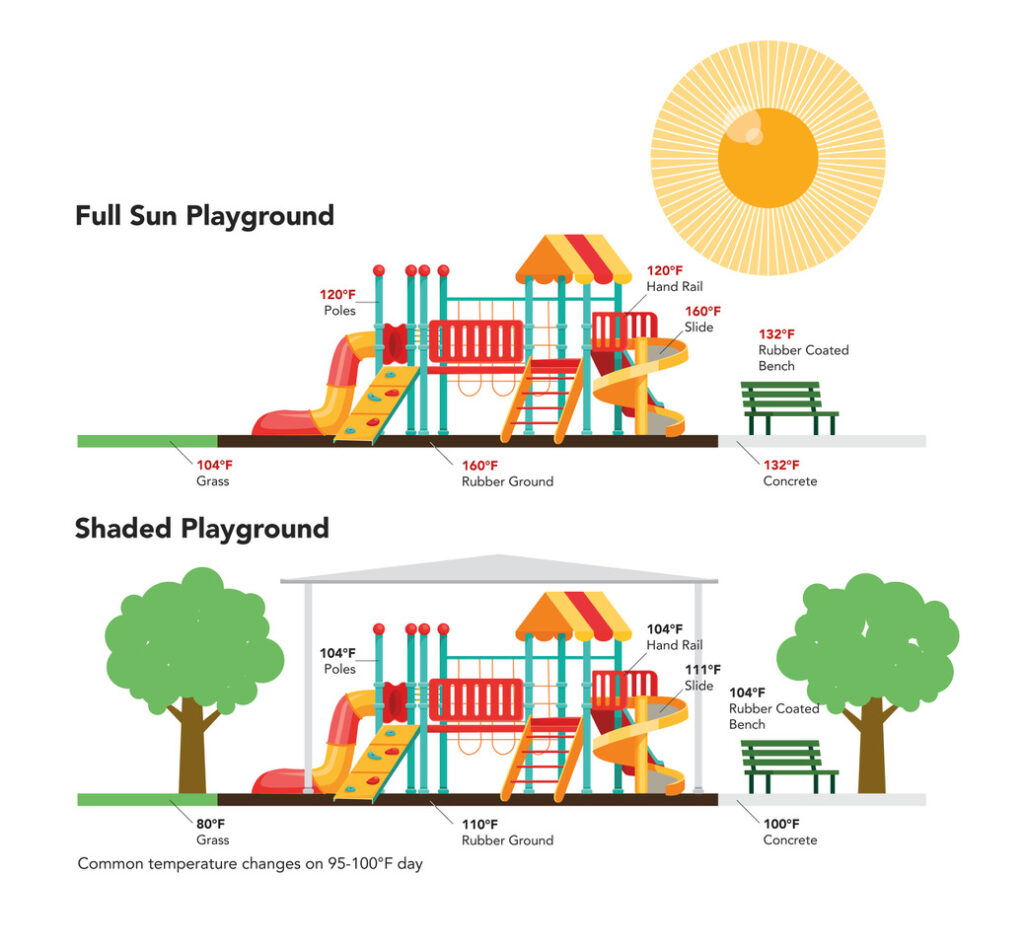
How can I get involved?
To get widespread feedback, we are also surveying city residents about their experience with extreme heat and their opinions on potential policy solutions in order to inform our extreme heat policy plan. You can fill out the survey at this hyperlink or go to bit.ly/MCEheat. To express our gratitude for those who fill out the survey, you can enter our raffle to win a 50” TV or a $25, $50, or $100 VISA gift card upon completion. The results of the survey will help persuade elected officials and will be available on our website.
We are also looking for feedback focus groups! If you belong to a community group, neighborhood association, or congregation in the City, we would love to hear your thoughts on which policies should be included in the plan. Please email Elyse Schaeffer, Policy Coordinator at eschaeffer@moenvironment.org to learn more.
What comes next?
When our focus groups are complete, we will open the plan up for public comment. Check back here for more details on how to share your thoughts, or email Elyse Schaeffer, Policy Coordinator at eschaeffer@moenvironment.org with specific policy ideas or concerns.
You are an essential part of making this plan a success. The Board of Alderman will want to know that the policy changes we are suggesting are desired by City residents. Stay tuned to learn how you can encourage your Alder to support our plan.
What about the rest of Missouri?
A part of this effort includes the development of a guide that will outline our public engagement process as well as the suggested policy and legislative solutions to mitigating extreme urban heat that were developed for St. Louis, which will be shared with other cities throughout Missouri. Each city in our state will need to engage with their local community and develop solutions that address their unique needs, and we hope to be a catalyst in the conversations and actions required to address climate change driven heat throughout Missouri.
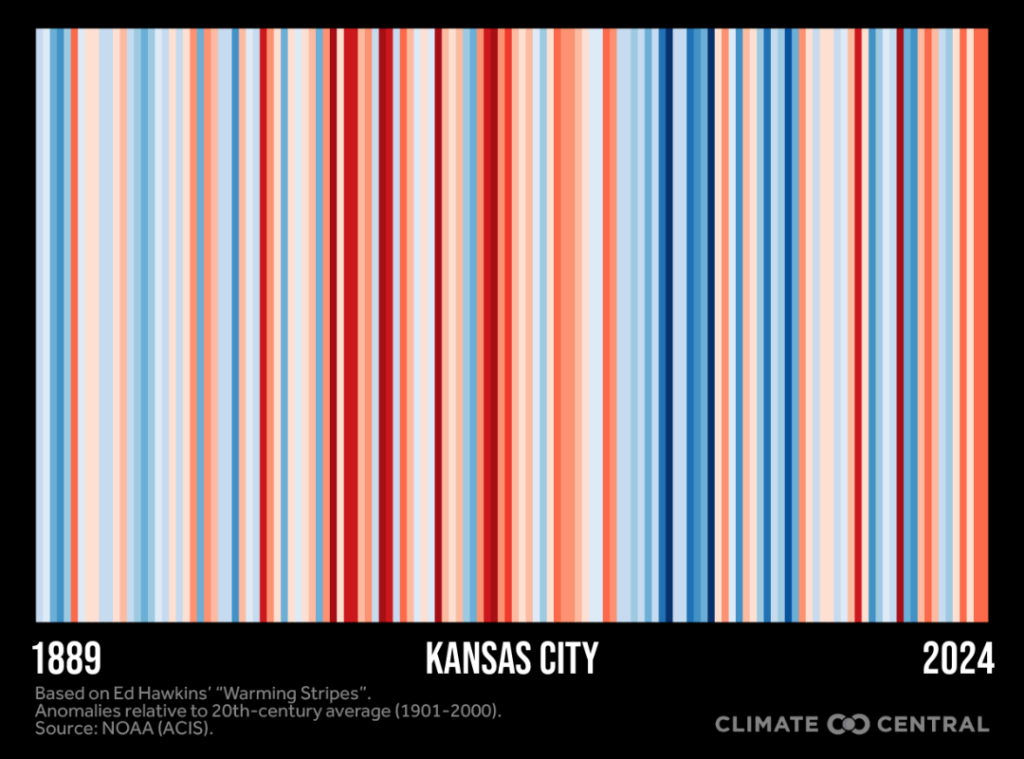
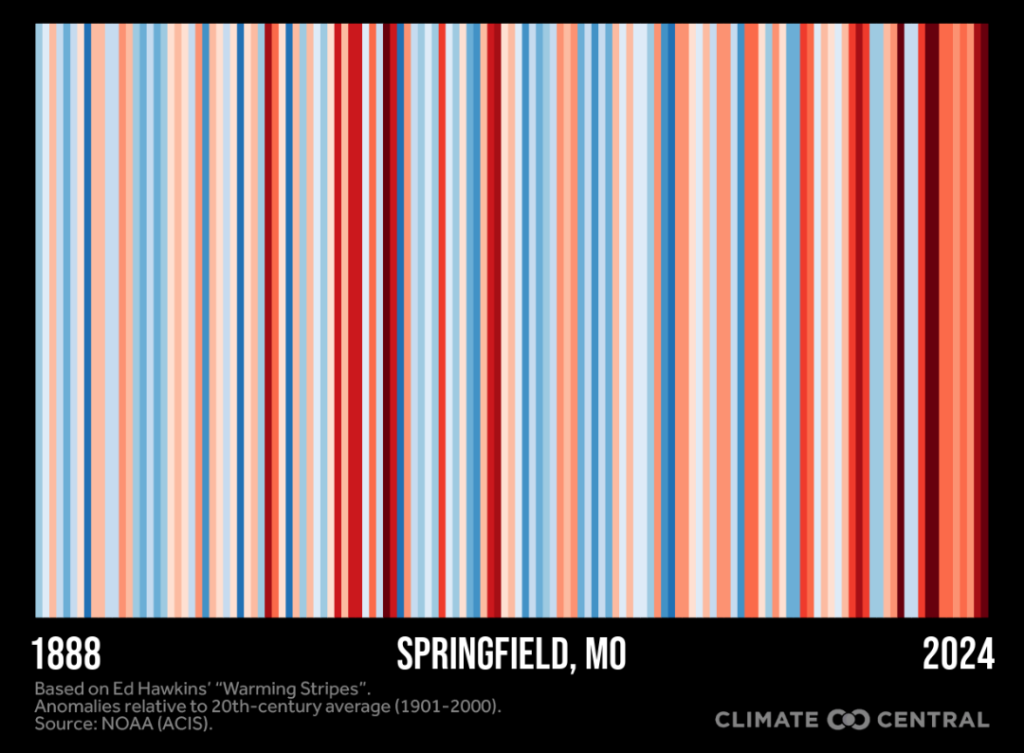
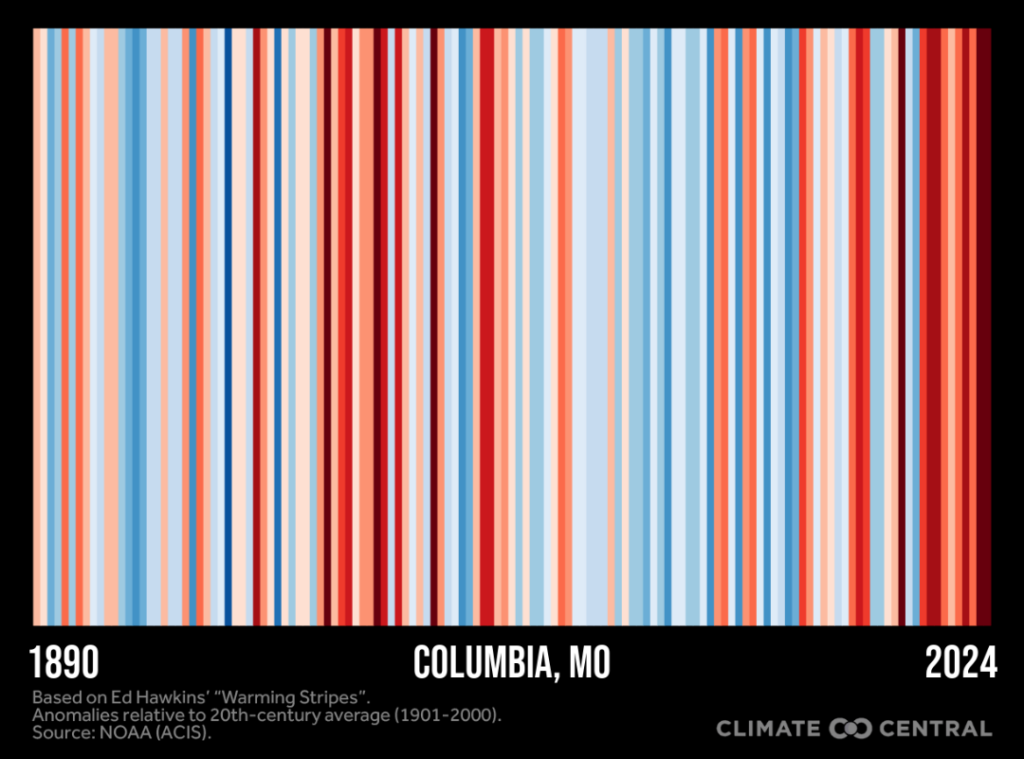
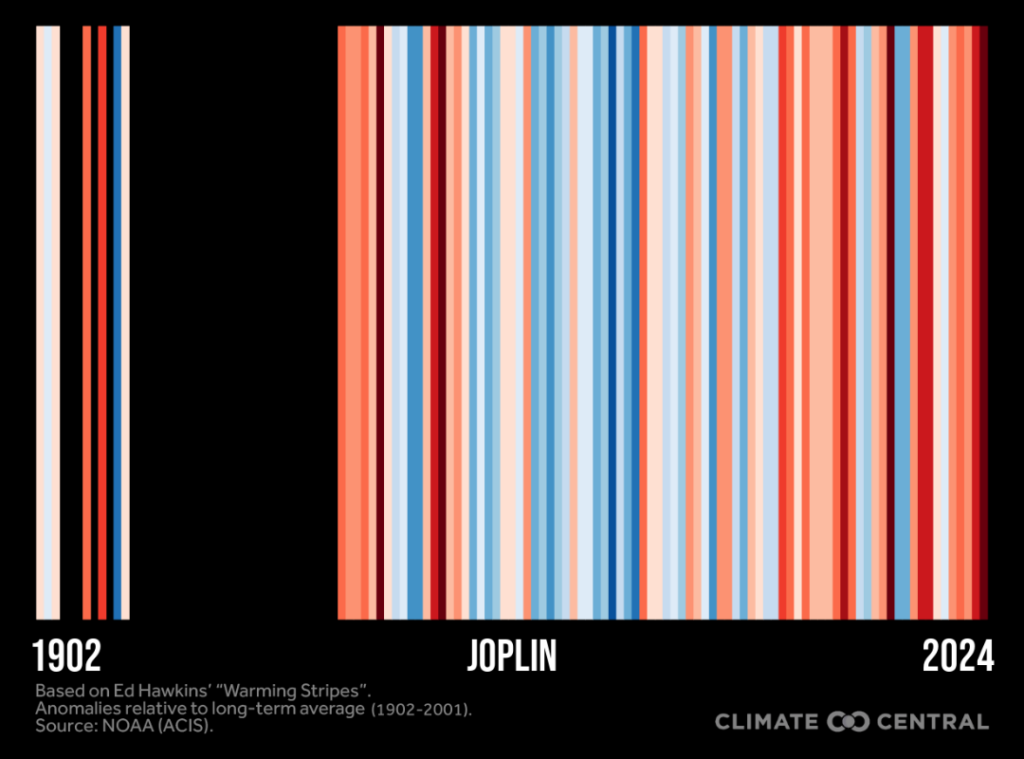
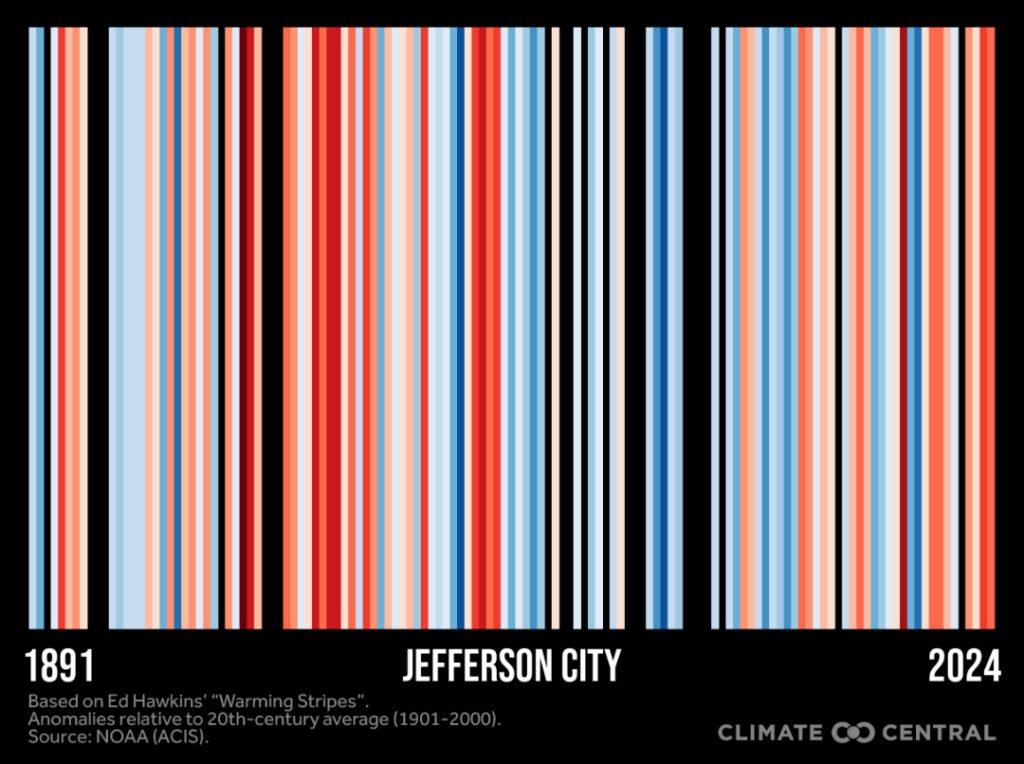
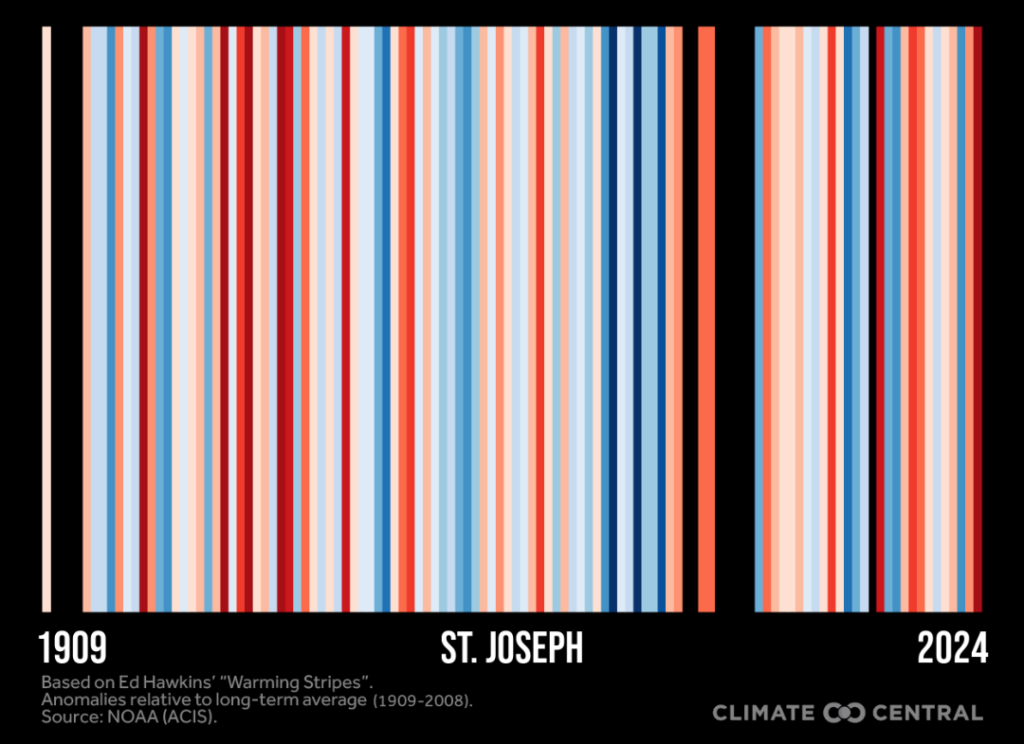
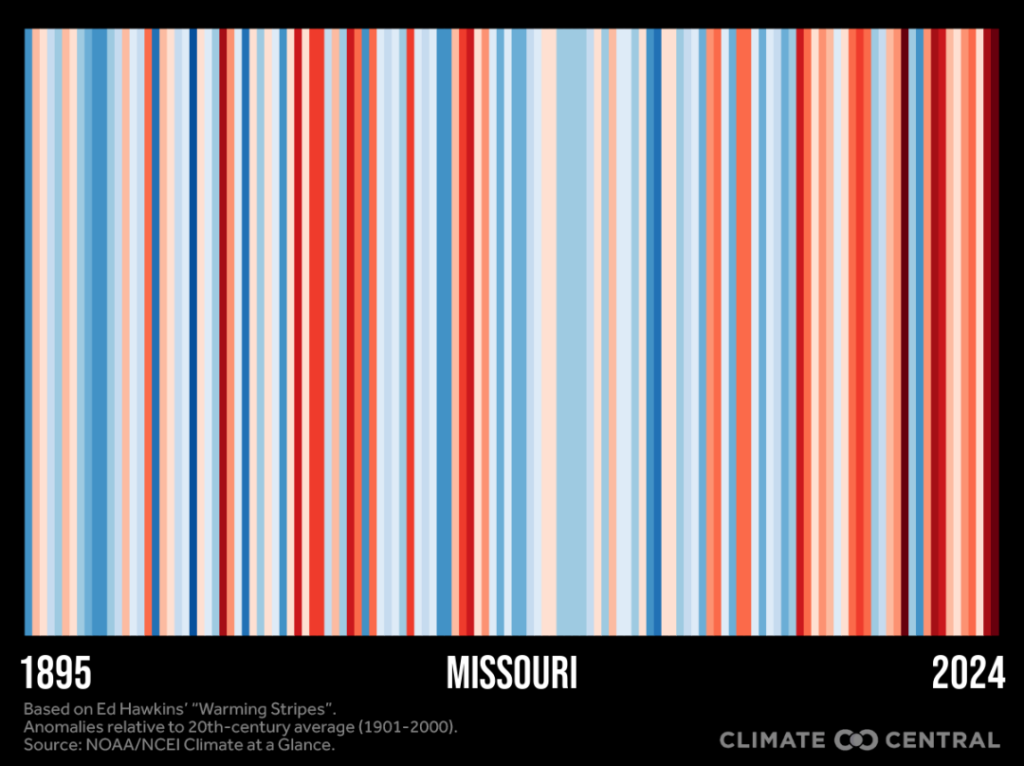
Sources
[1] “NWS HeatRisk,” National Weather Service. https://www.wpc.ncep.noaa.gov/heatrisk/
[2] Falconer, Rebecca. “Climate change report: Heat-related deaths on track to rise 370% by mid-century,” Axios, November 14, 2023. https://www.axios.com/2023/11/14/climate-change-heat-related-deaths-surge-lancet-report
[3] Adams-Fuller, Terri. “Extreme Heat Is Deadlier Than Hurricanes, Floods and Tornadoes Combined,” Scientific American, July 1, 2023. https://www.scientificamerican.com/article/extreme-heat-is-deadlier-than-hurricanes-floods-and-tornadoes-combined/ In fact, most years it kills more people than hurricanes, floods, and tornados combined, amounting to upwards of 356,000 deaths in 2019.
[4] Khatana, Sameed Ahmed M et al. “Projected Change in the Burden of Excess Cardiovascular Deaths Associated With Extreme Heat by Midcentury (2036-2065) in the Contiguous United States,” Circulation vol. 148,20 (2023): 1559-1569. doi:10.1161/CIRCULATIONAHA.123.066017
[5] “City of St. Louis Climate Vulnerability Assessment,” City of St. Louis, October 9, 2018. https://www.stlouis-mo.gov/archives/mayor-krewson/documents/upload/STL-Climate-Vulnerability-Assessment-FINAL-1-copy.pdf
[6] Bell, Selah Goodson et al. “Powerless in The United States,” Center for Biological Diversity, Energy and Policy Institute, Bailout Watch, 2023. https://www.biologicaldiversity.org/programs/energy-justice/pdfs/Powerless-in-the-US_Report.pdf
[7] “Integrated Resource Plan,” Ameren, 2023, Chapter 4, Page 1. https://www.ameren.com/missouri/company/environment-and-sustainability/integrated-resource-plan
[8] Nguyen, Andrew and Janelle O’Dea. “Interactive map: Median age of housing in St. Louis by neighborhood,” St. Louis Post-Dispatch, Jan 3, 2019. https://graphics.stltoday.com/apps/maps/lead/housing_age/
[9] “Extreme Urban Heat Policy Action,” Missouri Coalition for the Environment, June 27, 2025. https://moenvironment.org/blog/extreme-urban-heat-policy-action/

